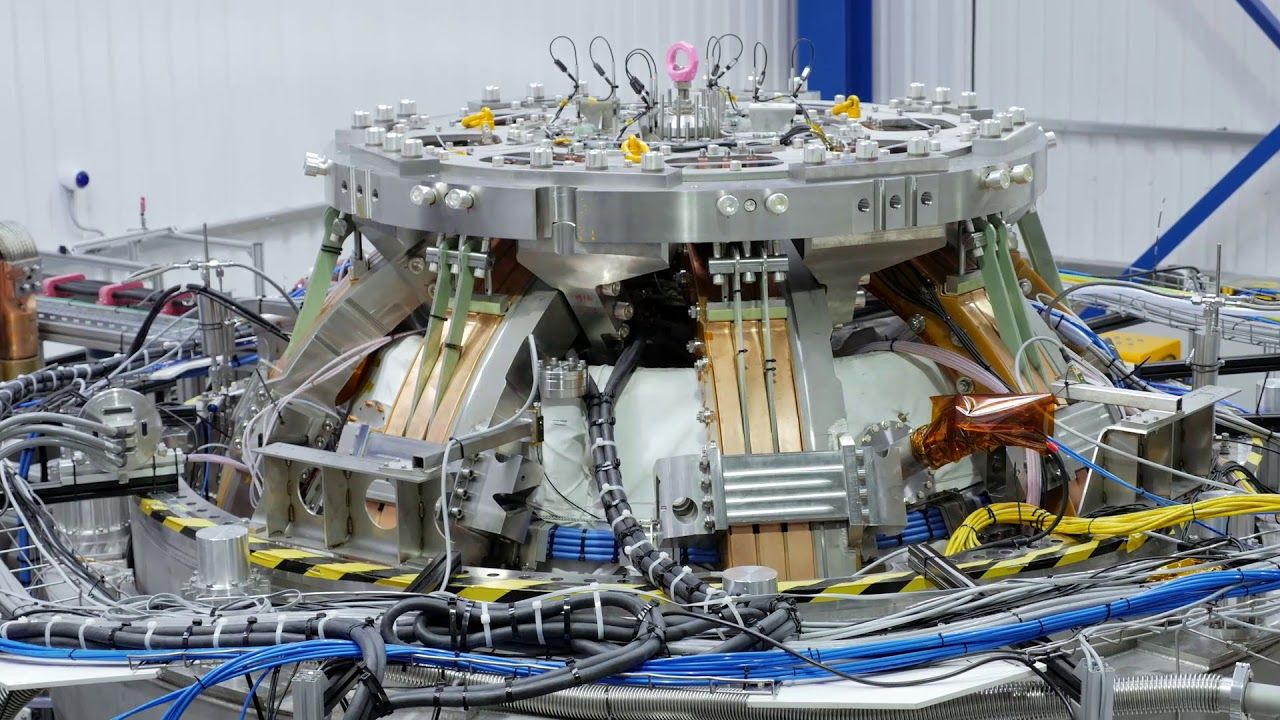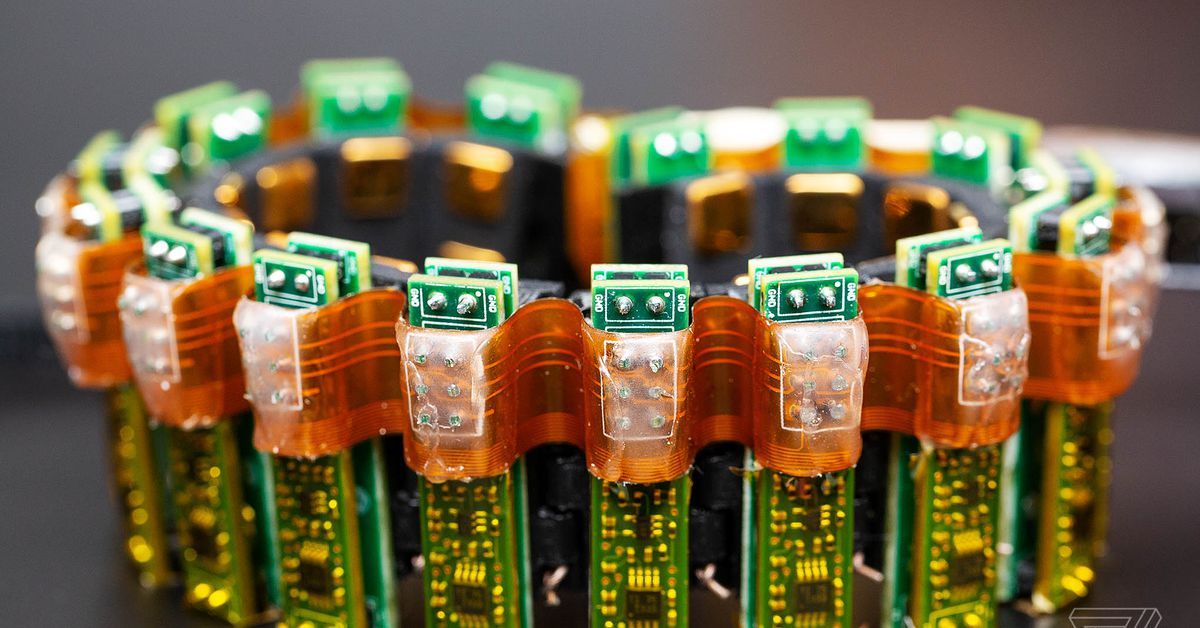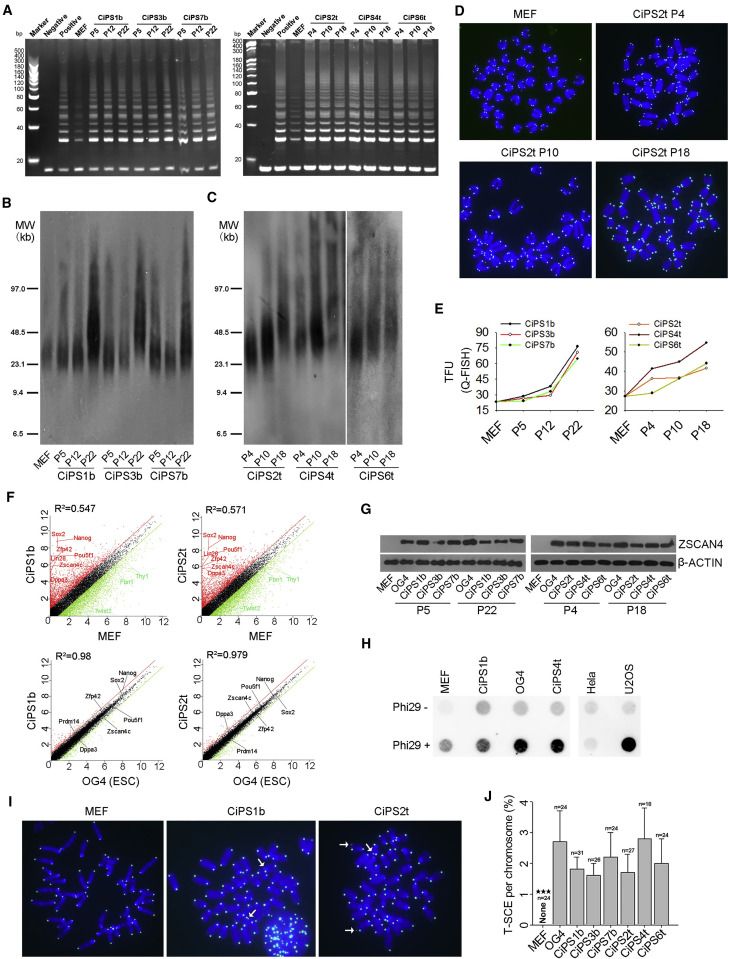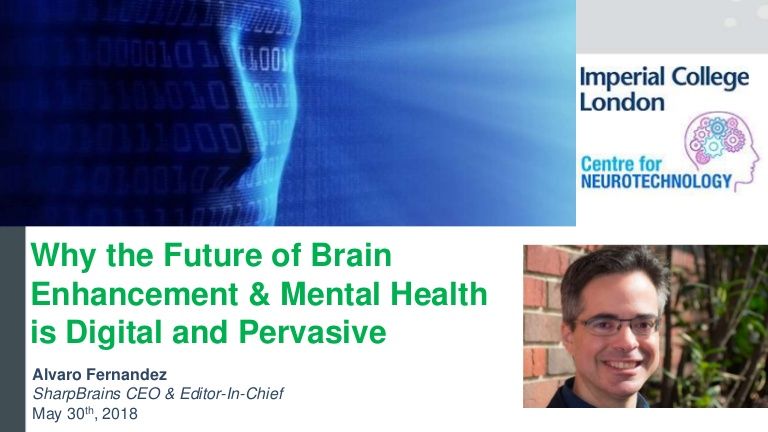Page 9681
Jun 9, 2018
Intel’s New Path to Quantum Computing
Posted by Klaus Baldauf in categories: computing, quantum physics
Intel’s director of quantum hardware, Jim Clarke, explains the company’s two quantum computing technologies.
Jun 8, 2018
I tried the wristband that lets you control computers with your brain
Posted by Klaus Baldauf in categories: computing, neuroscience
Neurotechnology startup CTRL-Labs hopes to create the first mass-market brain-computer interface using an electrode-studded wristband. We got an early taste of how it works.
Jun 8, 2018
Will a cryogenically-frozen corpse ever come back to life?
Posted by Amberley Levine in categories: cryonics, life extension
Will we ever be able to bring cryogenically frozen corpses back to life? A cryobiologist explains.
Jun 8, 2018
Two Quantum Computing Bills Are Coming to Congress
Posted by Genevieve Klien in categories: computing, government, quantum physics
Quantum computing has made it to the United States Congress. If this field of quantum information is the new space race, the US doesn’t want to fall behind.
After all, China has funded a National Laboratory for Quantum Information Sciences, set to open in 2020, and has launched a satellite meant to test long-distance quantum secure information. Two new bills, one of which is still a draft, are meant to establish the US as a leader in the field.
“Quantum computing is the next technological frontier that will change the world, and we cannot afford to fall behind,” said Senator Kamala Harris (D-California) in a statement passed to Gizmodo. “We must act now to address the challenges we face in the development of this technology—our future depends on it.”
Continue reading “Two Quantum Computing Bills Are Coming to Congress” »
Jun 8, 2018
Dynamics of Telomere Rejuvenation during Chemical Induction to Pluripotent Stem Cells
Posted by Alexander Rodionov in categories: biotech/medical, life extension
Chemically induced pluripotent stem cells (CiPSCs) may provide an alternative and attractive source for stem cell-based therapy. Sufficient telomere lengths are critical for unlimited self-renewal and genomic stability of pluripotent stem cells. Dynamics and mechanisms of telomere reprogramming of CiPSCs remain elusive. We show that CiPSCs acquire telomere lengthening with increasing passages after clonal formation. Both telomerase activity and recombination-based mechanisms are involved in the telomere elongation. Telomere lengths strongly indicate the degree of reprogramming, pluripotency, and differentiation capacity of CiPSCs. Nevertheless, telomere damage and shortening occur at a late stage of lengthy induction, limiting CiPSC formation. We find that histone crotonylation induced by crotonic acid can activate two-cell genes, including Zscan4; maintain telomeres; and promote CiPSC generation. Crotonylation decreases the abundance of heterochromatic H3K9me3 and HP1α at subtelomeres and Zscan4 loci. Taken together, telomere rejuvenation links to reprogramming and pluripotency of CiPSCs. Crotonylation facilitates telomere maintenance and enhances chemically induced reprogramming to pluripotency.
Jun 8, 2018
You’d Need 6.3 Billion Years to Do What This Supercomputer Can Do in a Second
Posted by Genevieve Klien in category: supercomputing
Summit, a supercomputer built in the United States for the Oak Ridge National Laboratory, is taking the lead from China for the title of world’s speediest computer.
Jun 8, 2018
Milestone claimed as experimental nuclear reactor reaches temperature of the Sun
Posted by Genevieve Klien in category: nuclear energy

One of the possible pathways to limitless and clean energy can be found in hollow, doughnut-shaped chambers known as tokamak nuclear fusion reactors. A relatively new player on the scene, a UK company called Tokamak Energy, is claiming a new milestone in the area after heating its ST40 device to 15 million degrees Celsius, similar to temperatures found at the center of the Sun.
Jun 8, 2018
Volkswagen tests quantum computing in battery research
Posted by Klaus Baldauf in categories: business, information science, internet, quantum physics, robotics/AI
For the first time, Volkswagen experts have succeeded in simulating industrially relevant molecules using a quantum computer. This is especially important for the development of high-performance electric vehicle batteries. The experts have successfully simulated molecules such as lithium-hydrogen and carbon chains. Now they are working on more complex chemical compounds. In the long term, they want to simulate the chemical structure of a complete electric vehicle battery on a quantum computer. Their objective is to develop a “tailor-made battery”, a configurable chemical blueprint that is ready for production. Volkswagen is presenting its research work connected with quantum computing at the CEBIT technology show (Hanover, June 12–15).
Martin Hofmann, CIO of the Volkswagen Group, says: “We are focusing on the modernization of IT systems throughout the Group. The objective is to intensify the digitalization of work processes – to make them simpler, more secure and more efficient and to support new business models. This is why we are combining our core task with the introduction of specific key technologies for Volkswagen. These include the Internet of Things and artificial intelligence, as well as quantum computing.”
The objective is a “tailor-made battery”, a configurable blueprint Using newly developed algorithms, the Volkswagen experts have laid the foundation for simulating and optimizing the chemical structure of high-performance electric vehicle batteries on a quantum computer. In the long term, such a quantum algorithm could simulate the chemical composition of a battery on the basis of different criteria such as weight reduction, maximum power density or cell assembly and provide a design which could be used directly for production. This would significantly accelerate the battery development process, which has been time-consuming and resource-intensive to date.
Continue reading “Volkswagen tests quantum computing in battery research” »
Jun 8, 2018
Why the Future of Brain Enhancement and Mental Health is Digital and Pervasive
Posted by Alvaro Fernandez in categories: biotech/medical, health, neuroscience
It was a great pleasure to share latest data and insights with a fantastic community of researchers, engineers, innovators and investors last week, hosted by the Imperial College Centre for Neurotechnology in London. Hope you enjoy the overview slides!
Presentation by Alvaro Fernandez hosted by the Imperial College Centre for Neurotechnology in London.
Description: As seen in patent and investment trends, research findings and consumer/patient behaviors, Mental Health and Brain Enhancement are rapidly evolving in transformational ways which some call “empowering” and some “controversial.” Alvaro Fernandez, Editor-in-Chief of independent market research firm SharpBrains, will present and discuss the latest market data and forecasts on how digital platforms are poised to revolutionize brain & mental health diagnostics, monitoring, therapies and enhancement.
Continue reading “Why the Future of Brain Enhancement and Mental Health is Digital and Pervasive” »

















